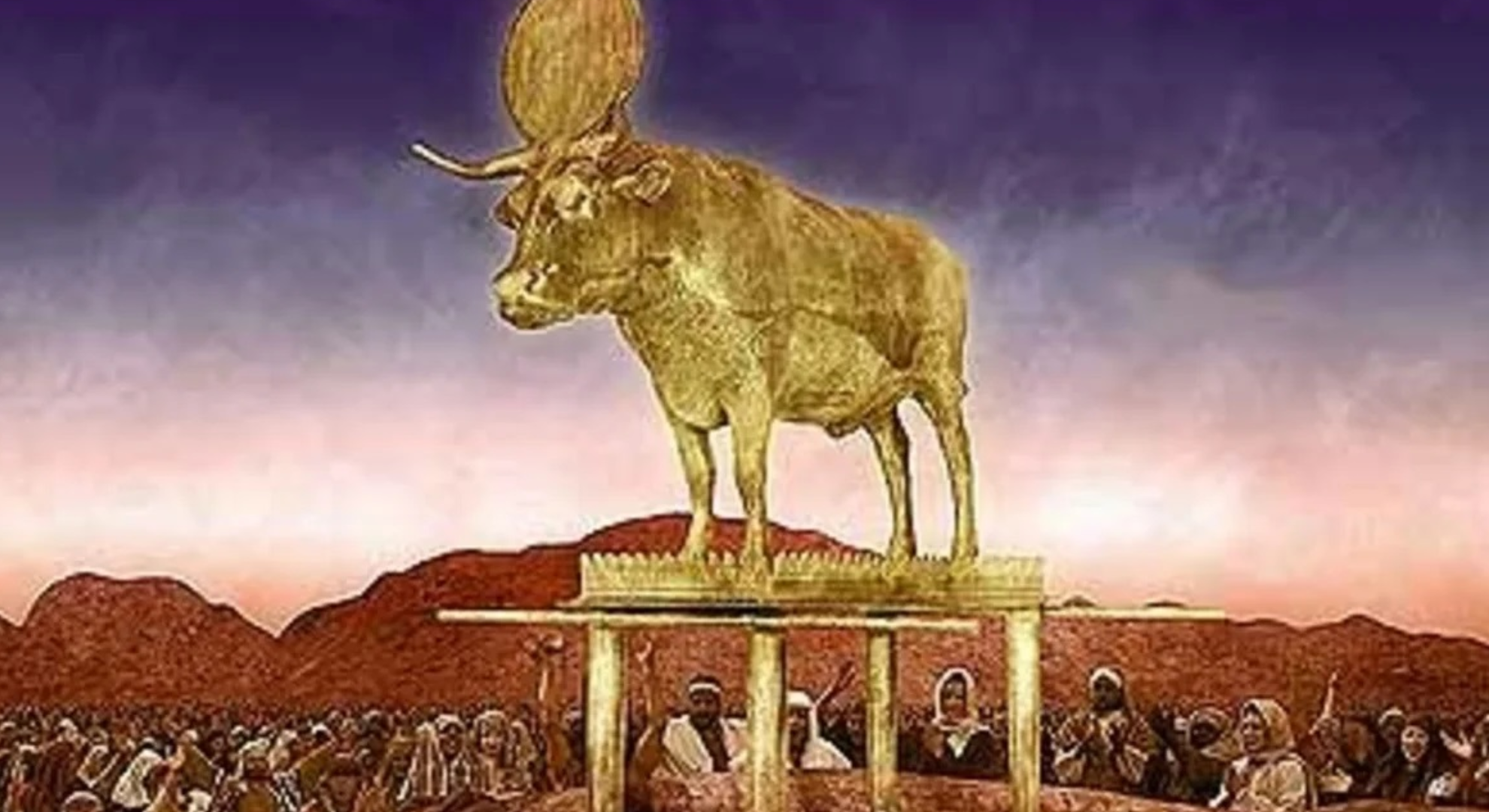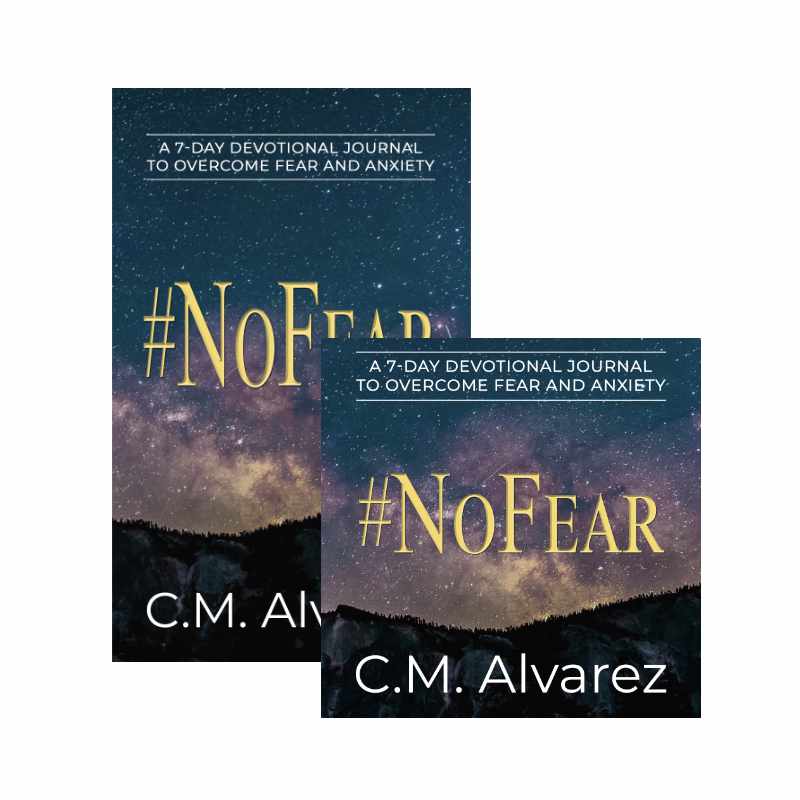What’s the Name of Your Golden Calf?
What is the Golden Calf?
So what is the golden calf? Let’s set the stage: the Israelites had left Egypt, the Egyptian pharaoh and warlords had been destroyed in the Red Sea, and Moses had come to the Israelites with a proposition … an opportunity … to come into covenant with their God who had just delivered them from their oppression.And the people had agreed. They said with “one voice” that they would follow God’s laws and obey him. So Moses went up on Mt. Sinai to get the terms of that covenant. We tend to think of just the 10 Commandments when we think of the Mosaic covenant, but there were many more rules and regulations that the Israelites were to follow, by some counts a total of 613.
Common Questions
- What does the golden calf symbolize?
- The golden calf summary
- Golden calf bible meaning
- What does the golden calf mean in the Bible?
- Where is the golden calf now?
- What was the sin of the golden calf?
- How many died because of the golden calf?
- Plague after golden calf
- Golden calf meaning today
- Golden calf worship today
- Lessons from the golden calf
Meeting God on Mt. Sinai
7 Then he took the Book of the Covenant and read it aloud to the people. Again they all responded, “We will do everything the Lord has commanded. We will obey.”
8 Then Moses took the blood from the basins and splattered it over the people, declaring, “Look, this blood confirms the covenant the Lord has made with you in giving you these instructions.”
9 Then Moses, Aaron, Nadab, Abihu, and the seventy elders of Israel climbed up the mountain. 10 There they saw the God of Israel. Under his feet there seemed to be a surface of brilliant blue lapis lazuli, as clear as the sky itself. 11 And though these nobles of Israel gazed upon God, he did not destroy them. In fact, they ate a covenant meal, eating and drinking in his presence!
A Bible study on the covenant meal between God and the elders. This is part of the “The reason for Easter” series.
But it was taking too long.
Things weren’t playing out on the people’s timeline and the way they expected it to. They were upset and afraid. They wanted someone (or thing) to lead them, but lead them the way they wanted things to go.
So the people went to Aaron, who had just been anointed to lead the people in their worship of Yahweh, and they start pressuring him saying,
“Come on,” they said, “make us some gods who can lead us. We don’t know what happened to this fellow Moses, who brought us here from the land of Egypt.”
Seeing isn’t always believing. Faith, as Donald Williams defines it in 95 Theses for a New Reformation, is “trust that commits.”
Even with everything they had experienced, the Israelites still didn’t have faith in their God.
Replacing God with an Idol
Aaron, the man who spoke for Moses and confronted the power of Egypt alongside him, caves to the pressure of the mob. He does what they want. He makes them some gods. The people bring the gold earrings and jewelry, that they had just been given by the Egyptians as they left Egypt, gifts that should have been used to build the Tabernacle and launch their lives in the new land God was leading them to, and made an idol out of it.
Aaron made them a gold calf.
3 All the people took the gold rings from their ears and brought them to Aaron. 4 Then Aaron took the gold, melted it down, and molded it into the shape of a calf. When the people saw it, they exclaimed, “O Israel, these are the gods who brought you out of the land of Egypt!”
The thing that should have been sacrificed to God was made a god.
And somehow Aaron justifies it. This inanimate object made the people happy, and somehow he thinks that honoring this calf will be acceptable to God.
5 Aaron saw how excited the people were, so he built an altar in front of the calf. Then he announced, “Tomorrow will be a festival to the Lord!”
6 The people got up early the next morning to sacrifice burnt offerings and peace offerings. After this, they celebrated with feasting and drinking, and they indulged in pagan revelry.
Aaron isn’t saying that they will have a festival to this new god he created. The word used in verse 5 is יְהֹוָה , Yahweh, the Divine Name. Aaron is justifying the idolatry, putting faith in something else, by saying that they are doing it for God.
Idolatry Brings Judgment
So what happens? What is God’s response? Is this festival supposedly to him when the people are worshiping an idol something that pleases him? No.
He is ready to destroy the lot of them and start over fulfilling his promise to Abraham through Moses.
7 The Lord told Moses, “Quick! Go down the mountain! Your people whom you brought from the land of Egypt have corrupted themselves. 8 How quickly they have turned away from the way I commanded them to live! They have melted down gold and made a calf, and they have bowed down and sacrificed to it. They are saying, ‘These are your gods, O Israel, who brought you out of the land of Egypt.’”
9 Then the Lord said, “I have seen how stubborn and rebellious these people are. 10 Now leave me alone so my fierce anger can blaze against them, and I will destroy them. Then I will make you, Moses, into a great nation.”
But Moses steps in and intercedes on their behalf (an example of identificational repentance), asking God to spare them for the honor of his own name.
11 But Moses tried to pacify the Lord his God. “O Lord!” he said. “Why are you so angry with your own people whom you brought from the land of Egypt with such great power and such a strong hand? 12 Why let the Egyptians say, ‘Their God rescued them with the evil intention of slaughtering them in the mountains and wiping them from the face of the earth’? Turn away from your fierce anger. Change your mind about this terrible disaster you have threatened against your people! 13 Remember your servants Abraham, Isaac, and Jacob. You bound yourself with an oath to them, saying, ‘I will make your descendants as numerous as the stars of heaven. And I will give them all of this land that I have promised to your descendants, and they will possess it forever.’”
14 So the Lord changed his mind about the terrible disaster he had threatened to bring on his people.
Moses reminds the Lord of his promise and the people are spared from complete destruction … but there is still judgment.
Moses went down the mountain, is enraged at the revelry going on, and smashes the tablets. Moses mad must have been a sight. Where is the golden calf now? He burned that golden calf, ground it into powder, and made the people drink it. (verse 20.)
Then he turned to Aaron, who had been left in charge and asks him “what were you thinking?”
21 Finally, he turned to Aaron and demanded, “What did these people do to you to make you bring such terrible sin upon them?”
22 “Don’t get so upset, my lord,” Aaron replied. “You yourself know how evil these people are. 23 They said to me, ‘Make us gods who will lead us. We don’t know what happened to this fellow Moses, who brought us here from the land of Egypt.’ 24 So I told them, ‘Whoever has gold jewelry, take it off.’ When they brought it to me, I simply threw it into the fire—and out came this calf!”
Anyone else thinking, “What a putz!” Aaron tries to excuse himself in his role in the whole fiasco.
But the story doesn’t end with the golden calf being destroyed. The Israelites face serious consequences for their idolatry.
Idolatry Brings Death
The thing that was worshiped wasn’t only destroyed, the idolaters were as well.
25 Moses saw that Aaron had let the people get completely out of control, much to the amusement of their enemies. 26 So he stood at the entrance to the camp and shouted, “All of you who are on the Lord’s side, come here and join me.” And all the Levites gathered around him.
27 Moses told them, “This is what the Lord, the God of Israel, says: Each of you, take your swords and go back and forth from one end of the camp to the other. Kill everyone—even your brothers, friends, and neighbors.” 28 The Levites obeyed Moses’ command, and about 3,000 people died that day.
29 Then Moses told the Levites, “Today you have ordained yourselves for the service of the Lord, for you obeyed him even though it meant killing your own sons and brothers. Today you have earned a blessing.”
That seems pretty harsh doesn’t it? The Levites killed their own that were worshiping the idol. But that’s still not the end.
It sounds like those 3,000 people who were killed by the Levites were the ones who were actively worshiping the golden calf, but the consequences of that idolatry did not only affect the idolaters alone.
Moses went to intercede for the people remaining, asking God’s judgment to pass, but this time judgment still came. The people who worshiped the golden calf had their name erased from the Book of Life … they were condemned … damned. But a plague still came on the people left.
Plagues as God’s Judgment
During our current pandemic, I’ve heard quite a few Christians claim that it is a judgment because of the sins of those outside the church. The current plague may be a sign of judgment, but the evidence of Scripture doesn’t say that it is because of sin of outsiders but of sin within God’s own people.
The sin of the Israelites was putting their trust in something other than God himself, and so a plague came. In the time of David, he brought on a plague because he carried out a census without God commanding it, signifying he was putting his trust in his own might rather than God. And the judgments of Revelation, including plagues, are said to come because people will not turn away from their idolatry … the things that they put their trust in other than God. (Revelation 9:20)
When David Chose the Plague
His people, not everyone else … if his people repent.
When looking for sins, rather than pointing fingers, we should be looking in mirrors.
Golden Calf Worship Today
You may be thinking, “I’m glad we’re under grace today.”
Yes, we are under grace. We have the empowering presence of the Holy Spirit to convict us and lead us out of our iniquity. But guess what? God doesn’t have any more tolerance for idolatry today than he did then.
In the New Testament, under the new covenant, Christians are told to keep themselves from idols (1 Corinthians 10:7, 14; 1 John 5:21), that idolatry is condemned along with other works of the flesh (Galatians 5:19-21, Colossians 3:5), and that idolaters will not inherit the kingdom of God (Revelation 21:8, 22:15).
Just because you don’t have a golden calf set up in your back yard doesn’t mean that you aren’t an idolater. Idolatry is putting trust in anything other than God himself. Paul highlights this in his letter to the church at Colosse,
5 Put to death, therefore, whatever belongs to your earthly nature: sexual immorality, impurity, lust, evil desires and greed, which is idolatry. (Colossians 3:5)
When someone is greedy … grasping and acquiring, trying to accumulate things for themselves … they are putting their trust in what they have and can acquire than in God.
#NoFear Devotional Package
What’s Your Calf’s Name?
So what’s the name of your golden calf? What are you putting your trust in? Does that question offend you? Are you thinking, “I’ve been in church my whole life, how dare you!”
You can be offended … it still doesn’t change the truth.
You can lie to other people, you can even lie to yourself … but you can’t lie to God. He knows the truth … and he will judge.
“I the Lord search the heart and test the mind, to give every man according to his ways, according to the fruit of his deeds.” Jeremiah 17:10 ESV
So the question is, do you want to know the truth? If you’re being an idolater, do you want to know it so that you can repent and be cleansed?
But if we confess our sins to him, he is faithful and just to forgive us our sins and to cleanse us from all wickedness. 1 John 1:9 NLT
Our problems as humans is that we don’t even know the extent of our mess. We’re very quick to judge and point out wrongs in others, but the command of 2 Chronicles 7:14 is a hard one because it requires us to confess our own sins. This requires the continuous and ongoing work of the Holy Spirit in our lives.
What is required of us is the willingness to submit to that work of the Holy Spirit. We choose to respond to the grace, the Holy Spirit acting in our lives.
Are you willing? If so pray David’s prayer when he sinned against God.
10 Create in me a clean heart, O God.
Renew a loyal spirit within me.
11 Do not banish me from your presence,
and don’t take your Holy Spirit from me.
12 Restore to me the joy of your salvation,
and make me willing to obey you.
13 Then I will teach your ways to rebels,
and they will return to you.
– Psalm 51:10-13 NLT



